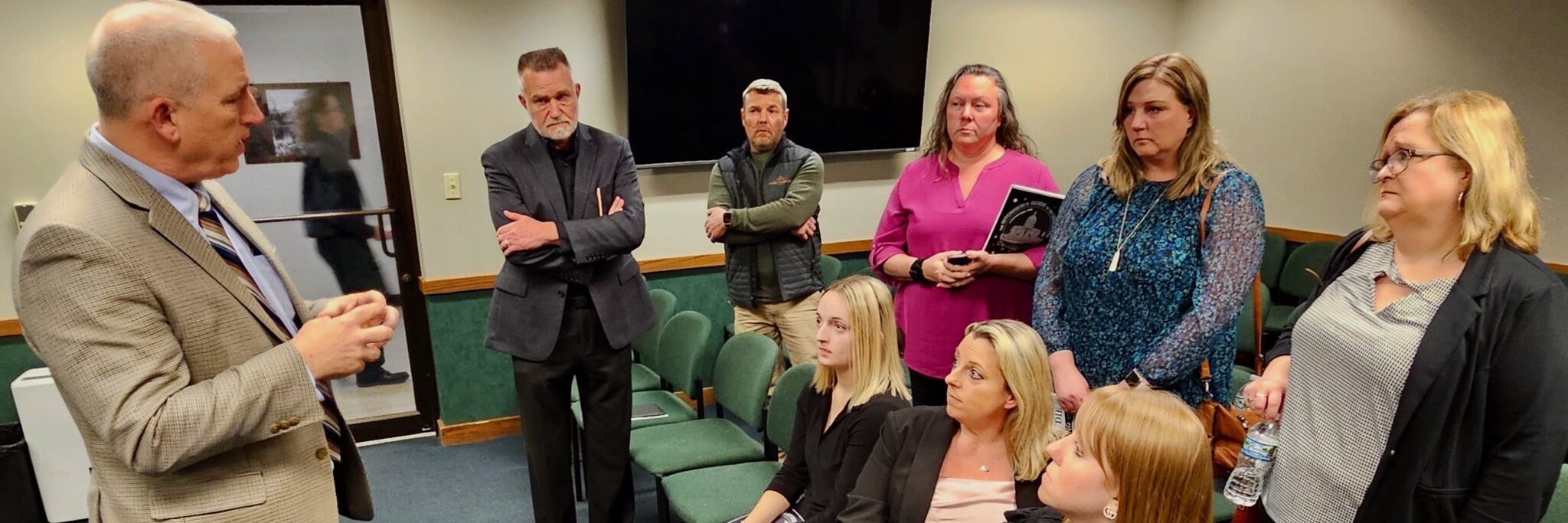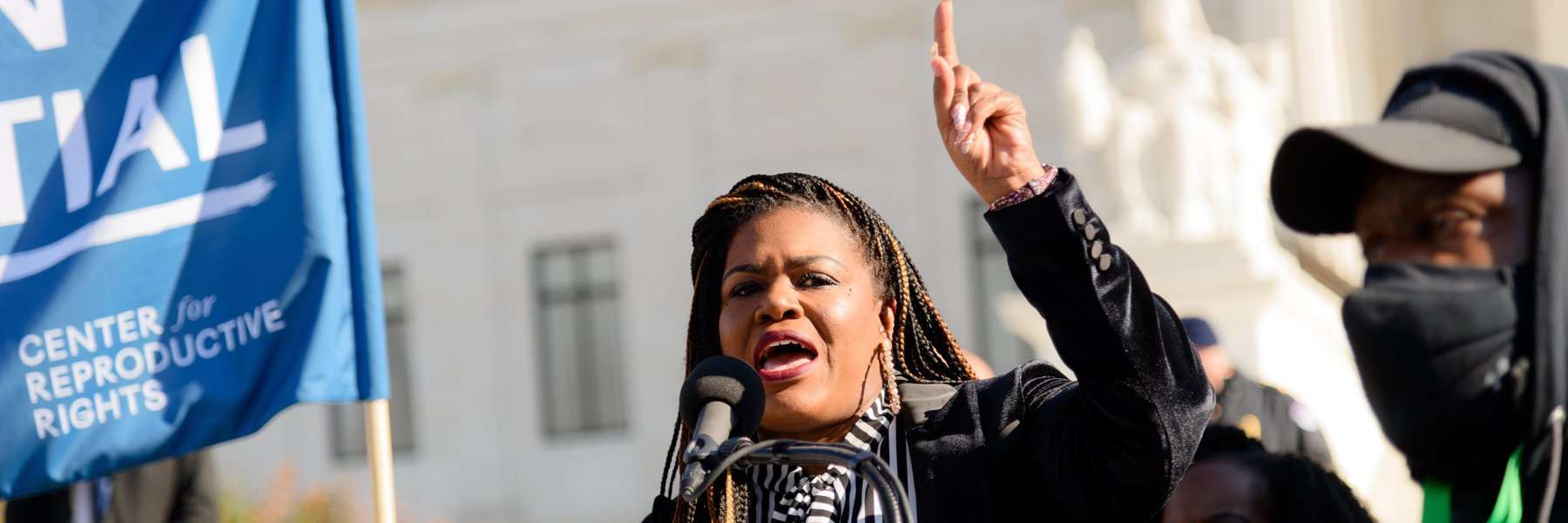The Missouri legislature is looking at setting minimum training standards for coroners following allegations that the Cape Girardeau County coroner stole money at death scenes and botched numerous death investigations.
Wavis Jordan, elected coroner of Cape Girardeau County in 2020, is scheduled to be in court on Friday for arraignment on a misdemeanor stealing charge and three felony counts of making false statements on death certificates. A separate court case, a quo warranto proceeding to remove him filed by Attorney General Andrew Bailey, is also pending.
Jordan is suspended from his duties but is still receiving his salary.
A half-dozen witnesses on Tuesday told personal horror stories of their interactions with Jordan during a hearing of the House Elections and Elected Officials Committee. They spoke in favor of a bill sponsored by Rep. John Voss requiring that all coroners be trained as emergency medical technicians and pass a course on death investigations.
“Missouri families are still being let down by a lack of standards of technical qualification for the county coroner,” said Voss, a Republican from Cape Girardeau. “This has been going on for decades and it is time for us to step up and provide leadership for this injustice.”
The stories told Tuesday ranged from examples of simple incompetence to possibly life-threatening mistakes.
One was Dana Mueller, who lost her sister, Susan Westrich, in July 2021. After being told that a toxicology screening would be done to help determine the cause of her death, Mueller says she called Jordan two days later to follow up.
Jordan told her he didn’t order the toxicology tests.
“‘I must have gotten things mixed up. I didn’t do it. Sorry,’” is the answer she received, Mueller told the committee.
“By then, my sister had already been cremated so it was too late,” she said.
The stories from other family members of people who died repeated several of the points made by Mueller – that Jordan was unprofessional in their presence, refused to order tests essential to determining a true cause of death and listed the cause of death as a heart condition.
Stephen Swoboda said that after he found the body of his younger brother, Jordan came to the scene to investigate. After he left, Swoboda said, he found a bottle of sodium azide, a rapidly acting poison used to inflate automobile airbags via an electric charge that causes an explosion and converts it to nitrogen gas.
It can explode upon contact with water.
Just the possibility that his brother ingested sodium azide in a suicide disrupted his funeral services, Swoboda said.
“When the funeral home found out what it was they would not embalm him,” he said.
The body wasn’t present at the church service and it was taken directly from the funeral home to the cemetery, he said.
“They flat told us that he might blow up while we’re carrying him to the grave,” Swoboda said.
Jordan, a Republican, worked as a school security guard, hearse driver and funeral florist but had no prior training or experience handling the dead prior to his election. He won a three-way primary in 2020 with 39% of the vote and faced no general election opponent.
In late 2021, an investigation by Documenting COVID-19, the USA TODAY Network and The Independent showed a large number of unexpected deaths in Cape Girardeau County. In fact, Jordan hadn’t pronounced a single person dead of COVID-19 in 2021.
In a 2021 interview, Jordan said his office “doesn’t do COVID deaths.” He did not investigate suspicious deaths himself, and required families to provide proof of a positive COVID-19 test before including it on a death certificate.
Lawmakers have tried to add new standards to coroner training but it has been slow getting started.
In 2020, lawmakers created the Coroner Standards and Training Commission, adding a $1 fee to death certificates to fund its operations. But Gov. Mike Parson did not appoint enough of the eight members to conduct business until 2022.
The 2020 law required the commission to set training standards but put no deadline for it to report on its activity, Voss told the committee. His bill would require a report by Jan. 1.
Coroners who testified on the bill said they support expanded training. Under questioning, Steve Murrell, coroner of Laclede County, said Jordan’s case is extreme.
“I think you’ve seen the worst of the worst there,” Murrell said. “We do have problems with other corners but maybe not to this degree.”
Ben Pursifull, the Dent County Coroner and a board member of the Missouri Coroners’ and Medical Examiners’ Association, said the training specified would disqualify candidates with nurse training or other experience that would be equal or superior to the requirements.
“We want to help,” he said. “We just feel that in this bill some of the language needs to be changed.”
Along with setting a date for the commission to report, Voss’s bill would require the standards to include EMT training and death investigation training.
The legal qualifications for a coroner, Voss noted, are that a candidate be 21 years old, a citizen and a resident of the state for at least a year and the county where they seek election for at least six months.
“Citizenship, residency and a pulse,” Voss said. “That’s it. Nothing more. Many of these laws have been on the books since the 1940s and it has not been a high priority to update them.”
One of the most recent updates to laws governing death investigations came in 1973, when a law passed requiring first class, non-charter counties to use appointed medical examiners. Since that time, counties transitioning to first class status, which is based on property values, have sought and obtained exemptions. Cape Girardeau County was granted an exemption in 1996.
In all other counties, voters elect the coroner.
There is no lack of money to pay for additional coroner training, Voss told the committee.
The commission’s training fund had $1.1 million on hand on Feb. 29 from the fee on death certificates. The commission spent $254.68 in fiscal 2023.
“There is enough money in the coroner training fund to provide this training to every coroner in the state,” Voss said.
Voss’s bill is moving quickly. Filed just two weeks ago, it received a hearing before hundreds of bills filed earlier in the year.
He’s hoping it keeps moving at a brisk pace.
“It is a compelling story,” he said. “It is a pretty easy lift to say we need this.”
Photo credit: Rudi Keller/Missouri Independent




